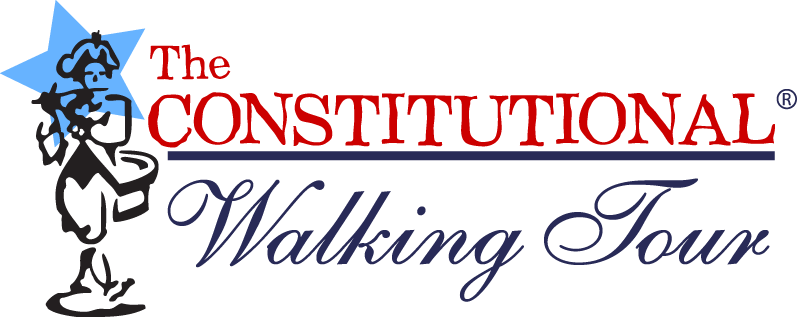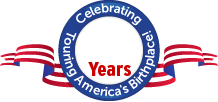Related Posts
- Buy Tickets for The Constitutional Walking Tour of Philadelphia – See 20+ Sites on a Primary Overview of Independence Park, including the Liberty Bell and Independence Hall
- Independence Hall History
- John Dickinson - One of America's Founding Fathers
On This Day in History, October 27, 1775, King George III speaks before both houses of Parliament and proclaims that the American Colonies are in open rebellion.

While it had been half a year since the "shot heard round the world" the Revolutionary War had yet to begin in earnest. After initial American Victories at Lexington, Concord and Fort Ticonderoga, the Brittish won the Battle of Bunker Hill a few months later to protect their position in Boston, but again suffered significant casualties. Following Bunker Hill, an uneasy stalemate continued for months with neither side willing to fully commit to open warfare.
In Philadelphia, the Second Continental Congress was in session at Independence Hall and while support for Independence had become increasingly widespread, there were still significant factions that were holding out. Chief among the holdouts was John Dickinson. Dickinson, a Pennsylvanian Quaker and pacifist, refused to believe that war was the only way forward. Up to that point, all of the actions that had so angered Americans had come through British Parliament. Americans refused to consent to laws passed by a government in which they had no voice, and many believed that Parliament's refusal to grant Americans a voice was nothing more than a naked power grab, a refusal of existing members in Parliament to dilute their own power by welcoming the Americans into their ranks. But while it was clear that Parliament would not play a role in deescalating tensions, there were many who still held out hope that King George III would step in and resolve their issues.
On July 5, 1775, Dickinson, with the approval of the Second Continental Congress, penned the Olive Branch Petition, which was a direct appeal to King George III. Within the Olive Branch Petition, the Contintal Congress expressed to King George III that the actions of Parliament and their British Ministers within the colonies had left the colonists with no choice but to arm themselves and defend themselves against tyranny. It was stressed that their anger was directed at Parliament, not King George III himself to whom they were still loyal.
King George however refused to even read the Olive Branch Petition as he believed it to be insincere and instead penned his "Proclamation of Rebellion" which he read before Parliament on October 27, 1775. King George insisted that he was sympathetic to the many in the colonies who he was sure remained loyal to the crown, and wanted to avoid war at all cost. But he also said that those who remained loyal to him were likely afraid to speak up due to the " torrent of violence" perpetrated by the traitors and that would likely be forced to remain silent until a "a sufficient force shall appear to support them." With these words King George III had pushed Parliament to send significant military forces to America to end their rebellion. Within months, tens of thousands of British Soldiers were on their way to America to fight in a war that would persist for eight years.





